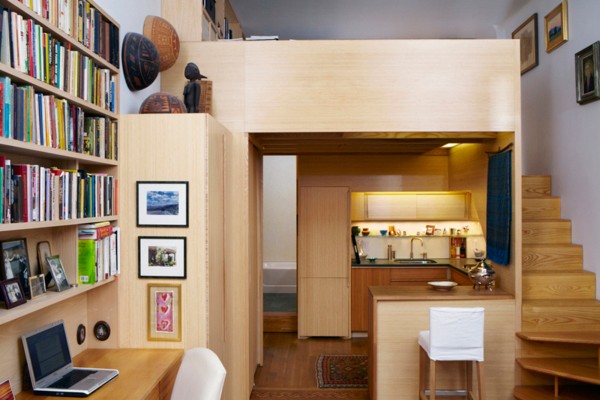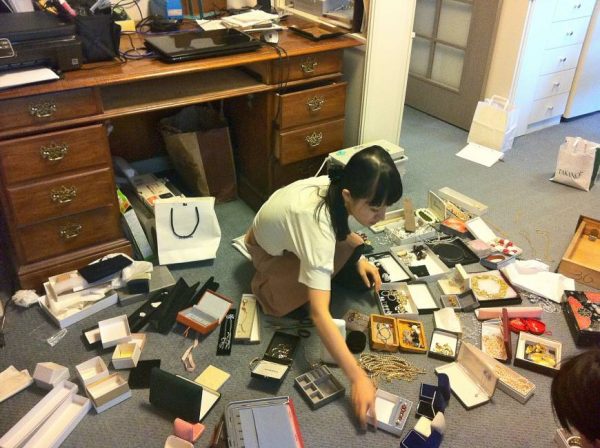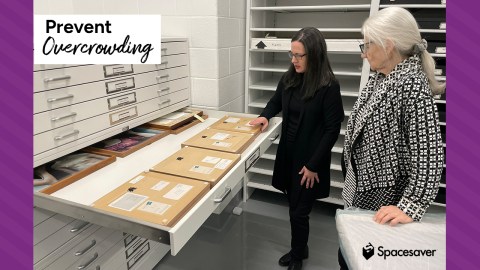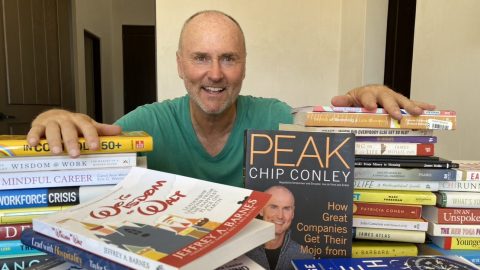
When it comes to collecting, museums are at the very end of a long chain of decisions. Before that new acquisition comes under the registrar’s pen, someone had to create an object, purchase or collect it, enabling it to eventually wend its way into a museum.
Several trends may be reshaping that supply chain. These include the rise of the sharing economy and the way that economy is eroding individuals’ legal and physical ownership of stuff. Add to that shrinking living spaces and a minimalist movement that advocates decluttering, and you have potential disruptions to the collections pipeline.
Galleries, Libraries, Archives, and Museums (GLAMs) are already grappling with the migration of content (records, correspondence) from paper to digital, including challenges of scale and readability. Now we face an additional complication: increasingly people don’t even own their digital collections of music, books or video content—they rent, borrow or pay to play.
Content that used to be contained in physical objects (books, records, photos, DVDs) is increasing being leased to us via digital devices. What does that mean for the legacy people can (or can’t) leave to document their life and work? Instead of an historic figures’ beloved book collection, will we be able to preserve her Kindle library? Would that collection even be stable over time? Will it contain (digital) marginalia? Photo collections increasingly live on the cloud, and if a service unexpectedly disappears, years of documentation can simply disappear. The podcast Reply All recently devoted a sobering episodeto one such story, about a mom named Rachel who panicked when PictureLife folded, erasing her visual record of her daughters’ childhoods. What if one of those girls grows up to be president?
Even the physical objects in which these digital records reside aren’t entirely under their owner’s control. You may remember that in 2009 Amazon remotely deleted copies of George Orwell’s 1984 from Kindle devices(#irony). And earlier this year Apple Music “de-duped” individuals’ MP3 collections (withoutpermission), removing rare variants of performances in the process. What does this kind of centralized control mean for historic houses, libraries, archives? Slate, in a series of articles this month on the future of ownership, concludes “we’re looking at …the concentration of ownership, a situation in which more and more of our stuff is held in fewer and fewer hands.” Will Amazon, Apple, Spotify and other content providers play a key role in determining what GLAMs can and cannot collect?
Many devices—from phones to thermostats—now rely on software, and tinkering with the device may constitute a copyright violation. Will copyright restrictions limit what museums can do to restore and repair obsolete devices? Even if a car museum can figure out how to fix their newly acquired prototype of a Tesla self-driving car, would Tesla let them?
Many devices—from phones to thermostats—now rely on software, and tinkering with the device may constitute a copyright violation. Will copyright restrictions limit what museums can do to restore and repair obsolete devices? Even if a car museum can figure out how to fix their newly acquired prototype of a Tesla self-driving car, would Tesla let them?
 |
| 240 sf micro-apartment in NYC |
The sharing economy plays a role in the declining accumulation of physical objects as well. Web-based businesses such as Rent the Runway, Girl Meets Dress and Borrow for Your Bump enable people to save on closet space by borrowing clothing on an as-needed basis. The increasing price of housing, rising student debt and adoption of “on-demand” transportation (include bikeshare and carshare services) are driving the creation of ever-smaller living spaces. This year the average apartment unit has fallen, nationally, to 950 square feet. Millennials are being tagged as the generation that doesn’t want to buy stuff, preferring to spend their money on experiences rather than things.
 |
| Decluttering guru Marie Kondo doing her thing |
The impulse to minimize isn’t confined to young adults, however: the core demographic for professional declutterers (yes, that’s a thing), is women between the ages of 40-65. Japanese decluttering guru Marie Kondo has sold over 4.8 million books and built a global cult following around her “magic methods” for personal deaccessioning. Dana Allen-Greil, at the National Archives and Records Administration, recently blogged about her enthusiasm for KonMari methods, and her concerns (as a museum person) about what widespread adoption of this approach would mean for the ability of museums to inherit, and preserve, memories. If we experience a rise in the number of people eagerly discarding stuff that doesn’t “spark joy,” she asks, what does that mean for future historians, archivists? As Greil notes, “Museums rely on the mild hoarders of the world. [Kondo’s] book could be the downfall of future museums!”
The curator of a costume collection once complained to me about how hard it was to find items of ordinary, everyday working people from past centuries. Future curators may look back on the 21st century as a time when personal ownership of everyday objects like clothing, music and books was a luxury confined to the rich. And as for digital legacies? Rights and reproductions managers in our future museums may spend a lot of time negotiating with Amazon, Apple, Spotify and their heirs.









Dear Elizabeth,
What a fortunate day this was for me to find your blog following a Twitter posted on Heritage Books through my Twitter account. I would like to share this fortune with you now. First, I agree with you 100% about the unfortunate results that will happen if people continue to follow this current trend of de-cluttering. There is so much I want to share with you, however, the best way to do so is to introduce you to my blog. Here is the link: http://www.howtocreateafamilymuseum.blogspot.com I have been writing this blog for over three years to espouse a cause on why and how to save your family heritage. I would appreciate it if you would preuse my blog and send me a comment. Thank you.
Elizabeth Goesel
Family Museum Curator